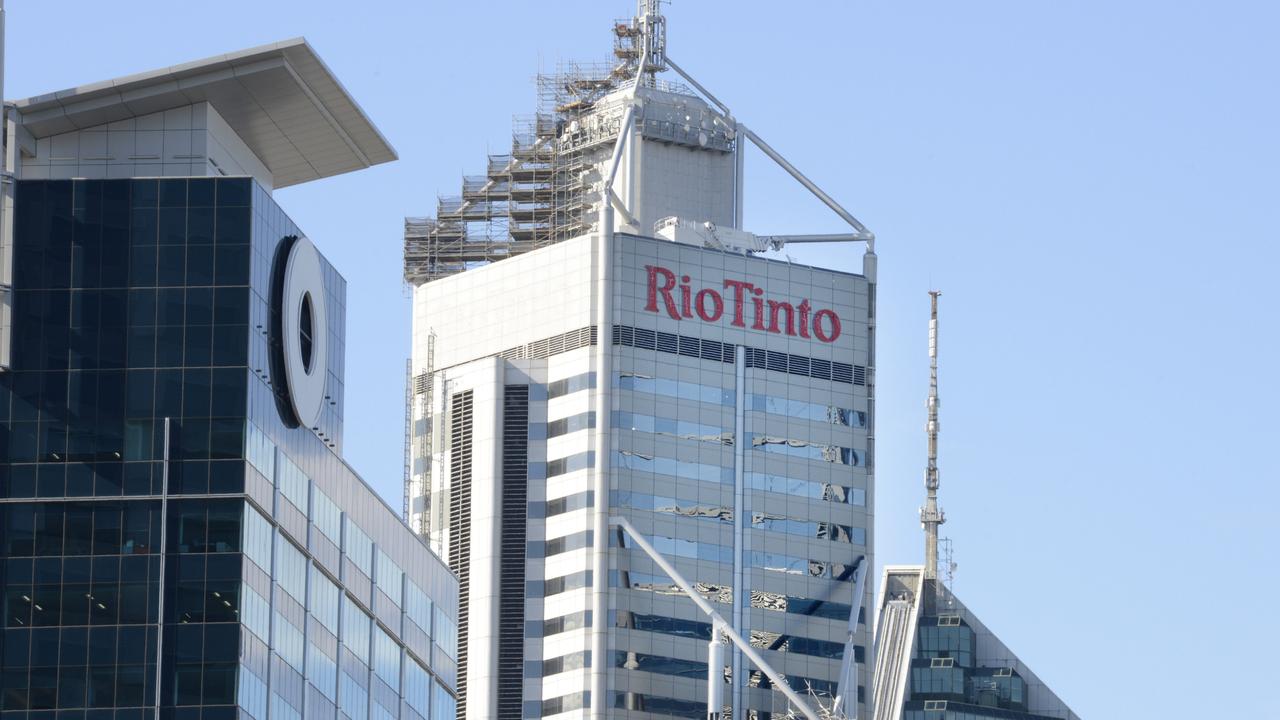Demolished buildings expose alarming problem for China amid Evergrande crisis
The potential collapse of Chinese property titan Evergrande has dominated headlines – but it has exposed a much deeper problem facing Beijing.

As the world’s most indebted real estate company teeters on the brink of ruin, attention has so far focused on how its failure could send shockwaves through global markets.
There has been much talk of Chinese property behemoth Evergrande – which has managed to rack up mind-blowing debts of $408 billion – facing its “Lehman moment”, with experts fearing it could trigger a worldwide financial crisis.
But while those jitters have calmed in recent days, it’s now clear the Evergrande saga has exposed a massive problem facing China today.
Real estate glut
Rhodium Group director Logan Wright recently told the Financial Times that China now had enough empty property to house more than 90 million people.
“So if you do assume that they are trying to take this problem seriously, then it would suggest that we should be preparing for a lower rate of growth in the future, especially from property construction,” he then told the ABC’s China Tonight.
“In many ways, Evergrande is sort of a symptom of a broader problem in the property sector in terms of the imbalance between supply and fundamental demand.”
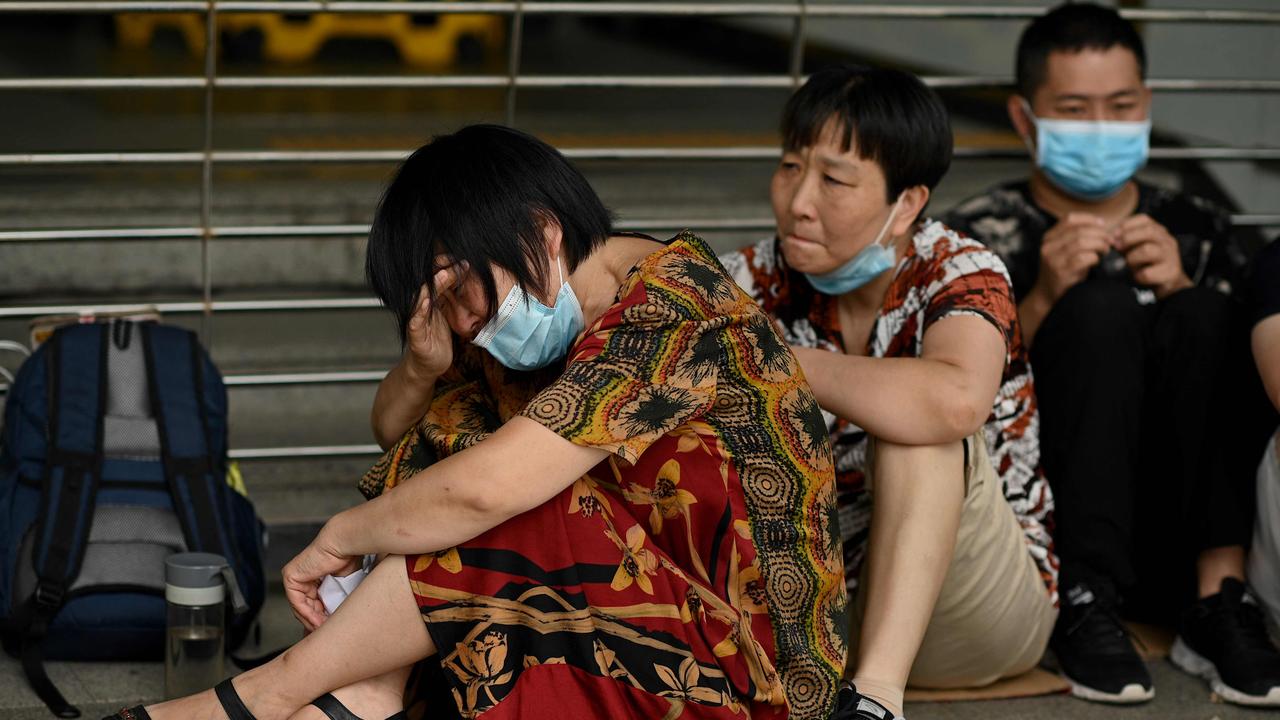
That imbalance was made brutally clear several weeks ago, when 14 unfinished apartment blocks were demolished at Kunming in southern China’s Yunnan province.
Work on the Sunshine II project had begun in 2011 but were never completed, with the buildings lying vacant since 2013 before meeting their demise.
While that project wasn’t one of Evergrande’s, it’s a forceful reminder of the scale of the problem within China’s property sector – and the impact a scale back would have on Australia, given China’s previous reliance on us for iron ore supplies.
According to Deloitte’s Chris Richardson, the fall in iron ore prices off the back of Evergrande’s woes mean “huge budgetary news” for both the federal and WA governments.
“Both have budgeted conservatively but they may not have turned out to have been conservative enough,” Mr Richardson told The Australian this week.
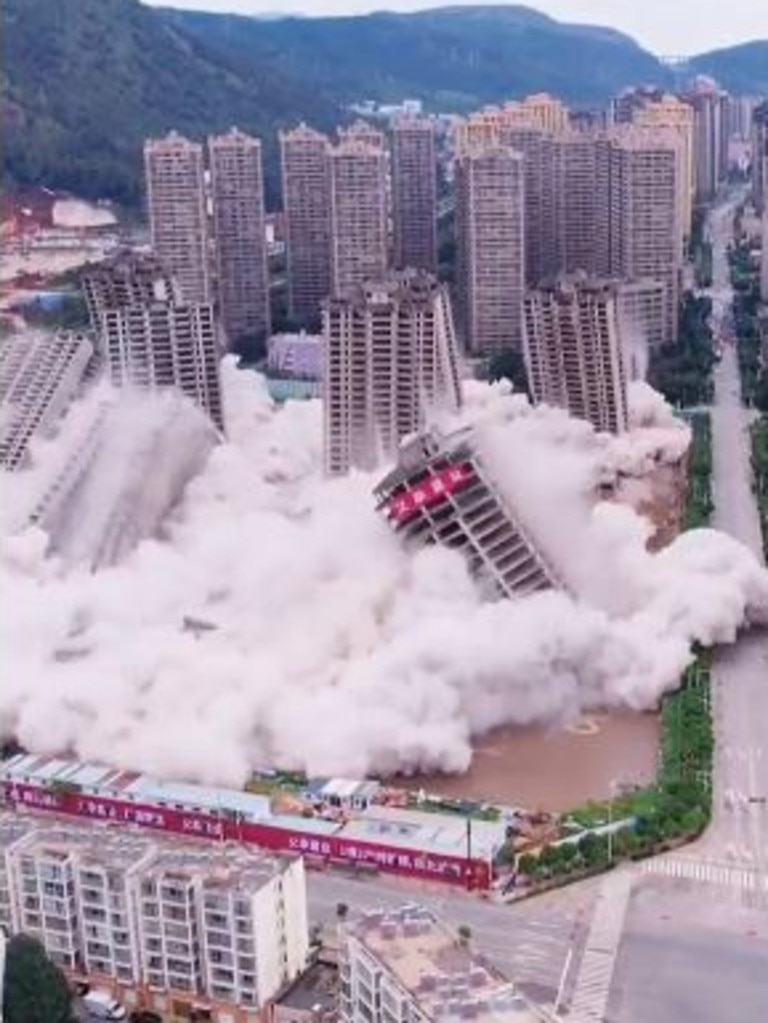
‘Beginning of the end’
Evergrande’s spectacular downfall began as China’s real estate market soared, with demand for homes in cities such as Beijing and Shanghai sending prices skyrocketing.
The company took out a string of loans and expanded rapidly, snapping up assets and making the most of China’s thriving economy.
But when property prices began to drop in smaller cities, and when the Chinese government rolled out measures to curtail over-the-top property borrowing via its “three red lines” policy, it left Evergrande in the lurch, with mountains of debt.
“Evergrande’s struggles have exposed the flaws of the Chinese financial system — unrestrained borrowing, expansion and corruption,” a recent New York Times analysis of the nightmare reads.
“The company’s crisis is testing the resolve of Chinese leaders’ efforts to reform as they chart a new course for the country’s economy.
“If they save Evergrande, they risk sending a message that some companies are still too big to fail. If they don’t, as many as 1.6 million home buyers waiting for unfinished apartments and hundreds of small businesses, creditors and banks may lose their money.”
Leland Miller, the chief executive officer of the consulting firm China Beige Book, said the Evergrande situation proved China’s previous growth model would not survive.
“This is the beginning of the end of China’s growth model as we know it,” he said.
“The term ‘paradigm shift’ is always overused, so people tend to ignore it. But that’s a good way of describing what’s happening right now.”
Meanwhile, according to Reuters, insiders claim Beijing is now directing government-owned companies and state-backed property developers to buy up Evergrande assets, another sign of a potential looming collapse.
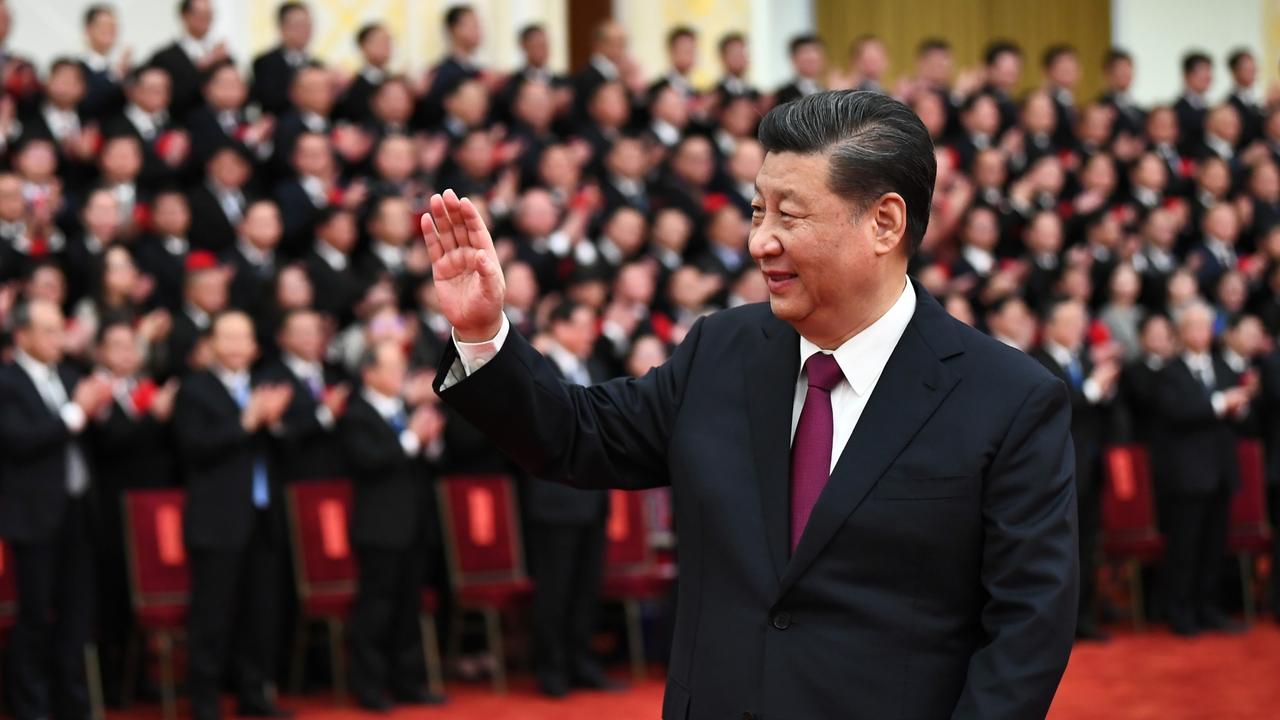
Threat to Australia?
Junvum Kim, sales trader at Saxo Markets, said Evergrande now seemed unlikely to impact the Australian real estate market, as was initially feared.
“Systematic contagion impact spreading to the Australian property market is expected to be unlikely as Evergrande’s liquidity crisis has been accumulating since last year with its high leverage – debt to equity ratio over 500 per cent – exposed to large US dollar bond issues,” he said.
“Also, in China’s major cities Shanghai and Shenzhen, home price to income ratio is 3-4 times higher than Sydney or Melbourne.”
He also said Evergrande’s collapse was unlikely to kickstart a global financial crisis, as Japan’s Kuroda and Powell from Fed have already mentioned there is a low chance of a global debt crisis.
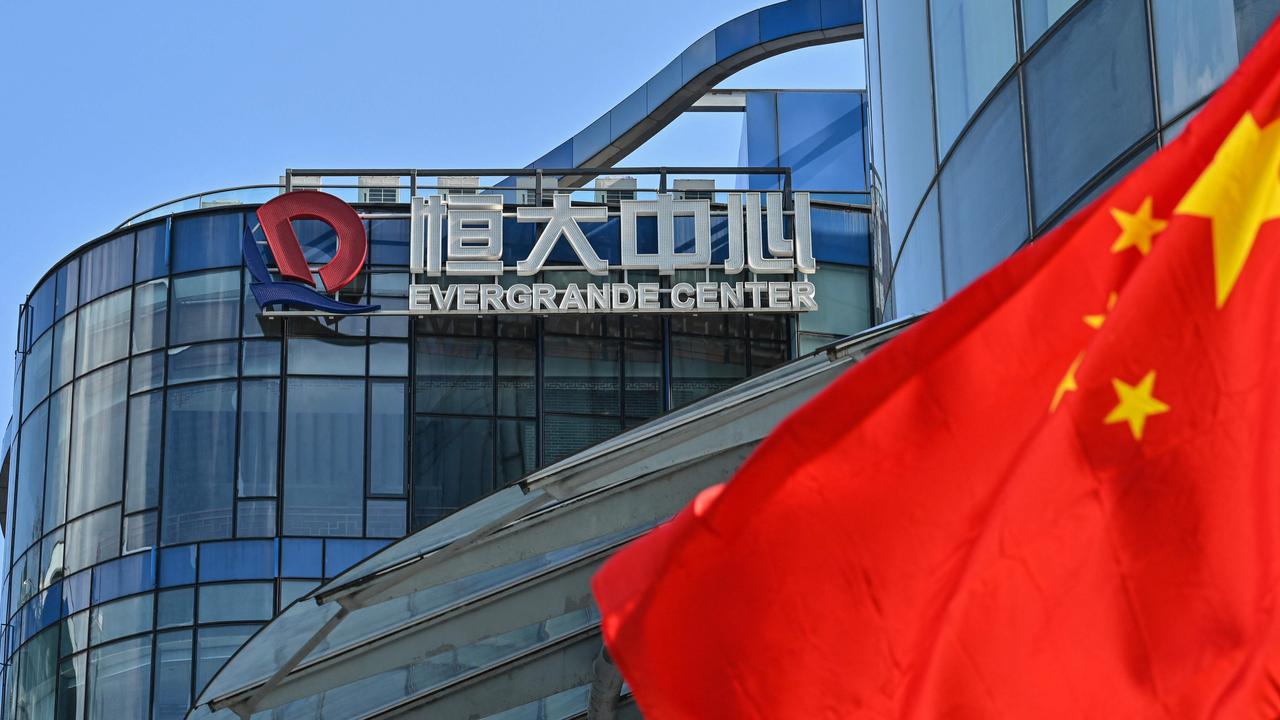
However, he said companies and governments needed to act to avoid another similar fiasco in future, arguing “more strict regulation and constraints over the aggressiveness of corporate leverage criteria to better maintain overall governance and liquidity risk management” was needed.
Mr Kim added that Evergrande’s potential collapse was probably not the sole reason behind the recent dip in crypto prices – but that “indirectly cryptocurrencies will almost always be vulnerable to any systematic risks given its high relative volatility compared to other asset classes.”

